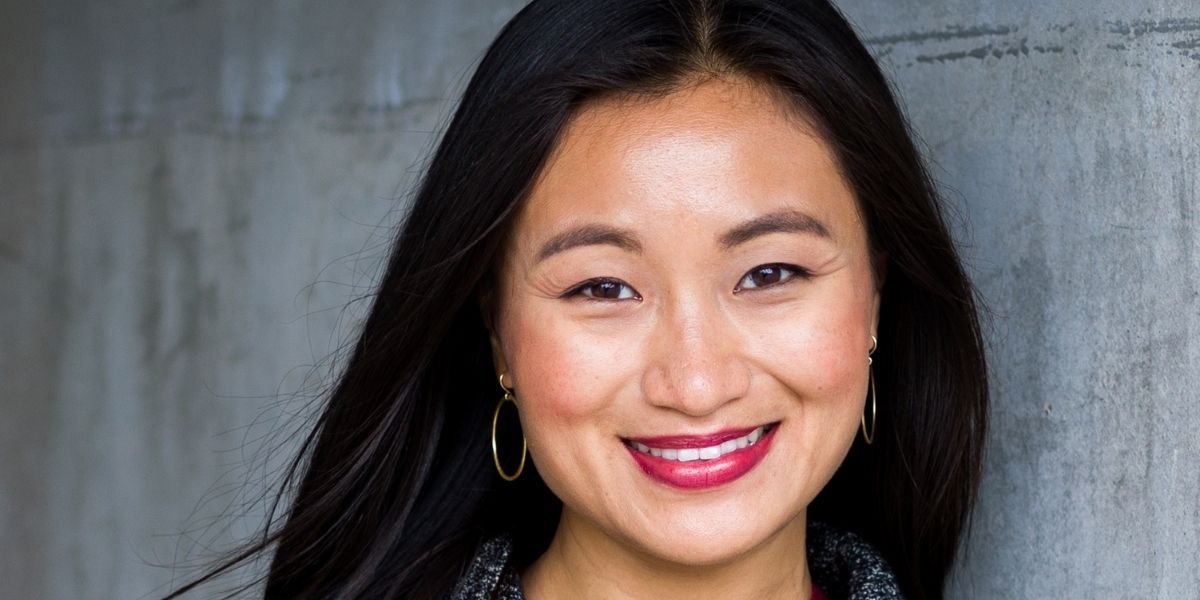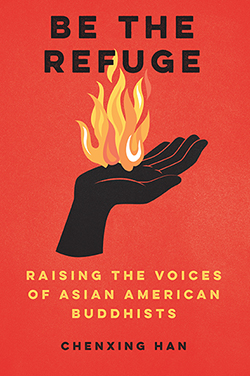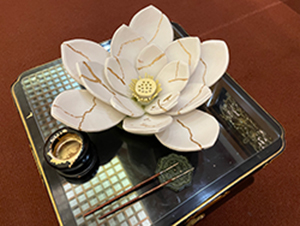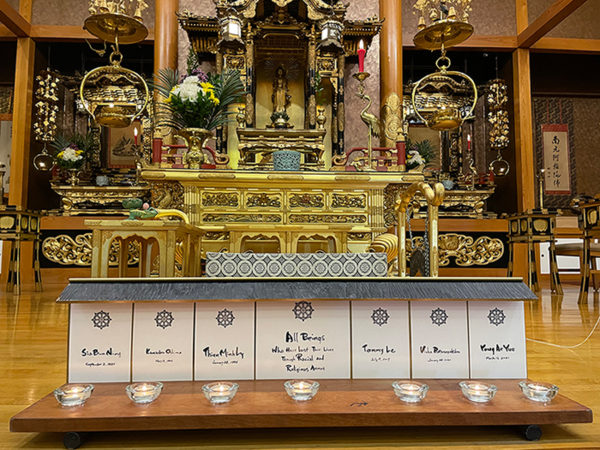
By Tova Green
For Chenxing Han, the Month of May, which is Asian Pacific American Heritage Month, has been bookended by two events, the May We Gather National Memorial Ceremony for Asian American Ancestors on May 4 and the Dharma talk she will be giving at City Center with Rev. Dana Takagi on May 29. She will also, with co-organizers Duncan Williams and Funie Hsu, be speaking about the May We Gather Memorial Ceremony in an online SFZC program on June 26.
 Chenxing is the author of Be the Refuge: Raising the Voices of Asian American Buddhists published by North Atlantic Books in January 2021. Her articles have appeared in Buddhadharma, Journal of Global Buddhism, Lion’s Roar, Tricycle, and elsewhere. She was formerly a Buddhist chaplain; after studying chaplaincy at the Institute of Buddhist Studies in Berkeley, she worked in spiritual care at a nearby community hospital.
Chenxing is the author of Be the Refuge: Raising the Voices of Asian American Buddhists published by North Atlantic Books in January 2021. Her articles have appeared in Buddhadharma, Journal of Global Buddhism, Lion’s Roar, Tricycle, and elsewhere. She was formerly a Buddhist chaplain; after studying chaplaincy at the Institute of Buddhist Studies in Berkeley, she worked in spiritual care at a nearby community hospital.
In our interview, Chenxing spoke of the connections between her book, the May We Gather event, chaplaincy, and her upcoming Dharma talk at SFZC.
Chenxing sees her book Be the Refuge as a work of spiritual care, and thinks of the May 4 Memorial Ceremony as an embodiment of “Buddhist chaplaincy writ large.” Both her book and the ceremony were inspired by the bodhisattva Guanyin, who sees the suffering of the world and responds with skillful means. Chenxing’s book “helps Asian American Buddhists feel seen and heard. Suffering comes from erasure and invisibility.” Invisibility and isolation is a theme expressed by many of the young Asian American Buddhists Chenxing interviewed for her book, as well as by thousands of Asian Americans who have experienced violence in the U.S. historically as well as in the last several years.
 During the May 4 memorial service there was a poignant moment when several participants went one by one to carefully gild the cracks in the petals of a white ceramic lotus, a Japanese art called kintsugi. The gilded cracks were thus made more visible, but beautiful, and could not be ignored. It was a way of remembering a community that has been harmed by violence. “Seeing, hearing, and confronting suffering are necessary for healing to take place,” Chenxing noted. Although the ceremony was somber in tone, it was also a celebration of strength and resilience.
During the May 4 memorial service there was a poignant moment when several participants went one by one to carefully gild the cracks in the petals of a white ceramic lotus, a Japanese art called kintsugi. The gilded cracks were thus made more visible, but beautiful, and could not be ignored. It was a way of remembering a community that has been harmed by violence. “Seeing, hearing, and confronting suffering are necessary for healing to take place,” Chenxing noted. Although the ceremony was somber in tone, it was also a celebration of strength and resilience.
Chenxing, referring to her work of coordinating the many people involved in the ceremony, expressed appreciation for the great care all the participants took. “I was especially moved by the openness and flexibility of the dozens of monastics and lay leaders who participated, as well as the handful of people who helped behind the scenes. They didn’t have much time to rehearse, and there were language barriers, yet when the ceremony began they were like rivulets flowing into one river.”
The procession leader, Rev. Shumyo Kojima, a gifted calligrapher, handmade masks for the monastics and lay leaders on which he wrote 南無三宝 namu sanbou, paying homage to the Triple Gem of the Buddha, Dharma, and Sangha. Wanting to keep one another safe, all participants were masked. Chenxing described it as “a powerful embodiment of our care for each other.” She felt connected to the audience watching the livestream of the event, and to the thousands who have watched the video since then. One of Chenxing’s hopes was that ethnic Buddhist groups could come together despite differences in cultures and tensions between groups. May We Gather showed her that this is possible.
Since the May We Gather event, her book has taken on a new valence. With the heightened awareness of anti-Asian violence after the Atlanta shootings, some of the passages in her book seem extremely relevant. One example is a passage in her book by an anonymous Chinese American woman who experienced being sexually objectified in her predominantly white sangha.
Both the book and the ceremony aimed to create community spaces where people could gather and see one another. “It’s so easy to feel alone, especially during Covid,” Chenxing noted. Although most readings during her book tour have been online, attendees have felt connected to one another. She wondered if the book would seem dated, since she began working on it ten years ago, and has found that, to the contrary, it has sparked dialogue in a wide range of communities.
Chenxing and Dana Takagi have had several conversations in preparation for their May 29 Dharma talk which will be a dialogue on race, representation, lineage, anger, solidarity, and other themes inspired by Chenxing’s book. The talk is titled Roots, Refuge, Generations. Don’t miss it!

May We Gather National Memorial Ceremony on May 4 altar











